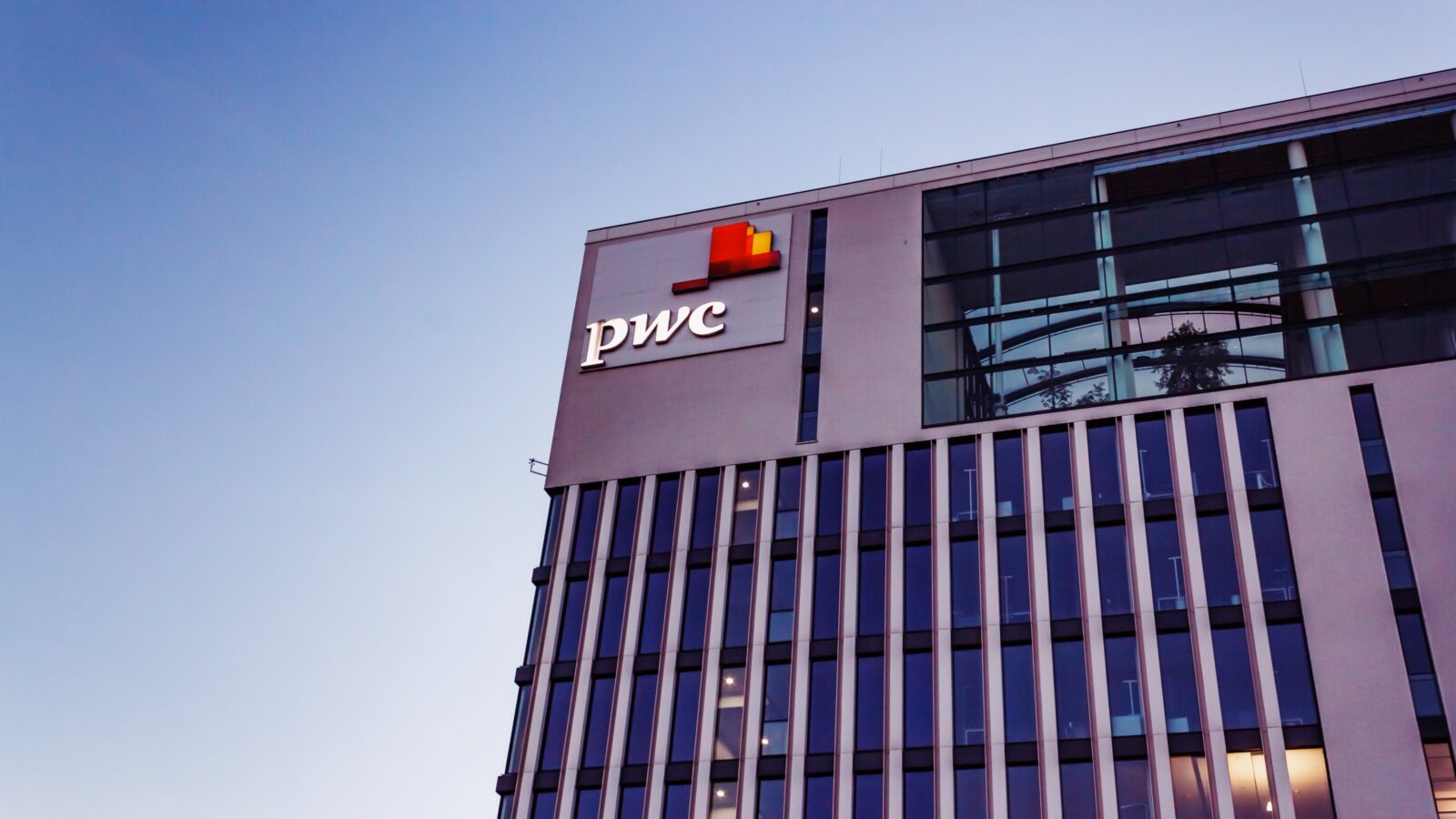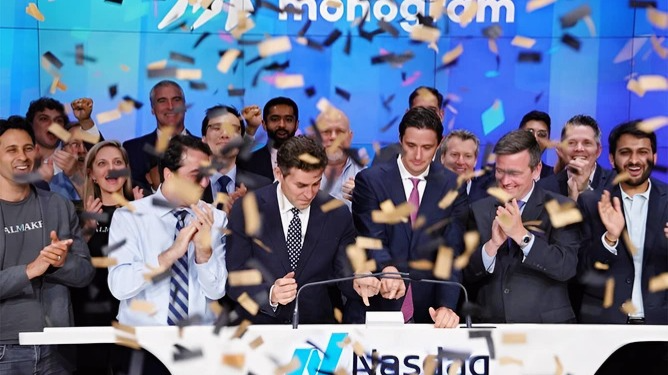Good morning.
Enough, Jerome Powell? On Wednesday, data released from the US Labor Department showed that the consumer price index rose 2.5% year-over-year in August. That’s down from 2.9% in July, and marks the fifth-straight month of cooling inflation. The welcome news comes a week ahead of the next Fed meeting, now all but guaranteed to deliver a 25 basis-point cut to federal interest rates. Our hard-to-please priests and priestesses of the Temple, as William Greider dubbed the Federal Reserve, should finally be satisfied.
PwC Slashes 1,800 Jobs in First Mass Cuts Since 2009

Another Big Four auditor is getting smaller: PricewaterhouseCoopers said Wednesday it will lay off 1,800 staff members at its US unit next month.
The move, first reported by The Wall Street Journal, will impact 2.5% of US employees; it also means PwC will join chief rivals EY, KPMG, and Deloitte, which have already laid off thousands of staff in the last two years as the industry tried to rightsize staffing levels amid an economic seesaw.
Join the Club
The Big Four hired up when demand from corporate clients spiked during the pandemic and kept up as the market boomed — PwC reported a record $53 billion in revenue in fiscal 2023, up 5.6%. But high interest rates and a weakening economy have pushed down demand, as third-party services are among the first things companies will look to when trimming expenses.
At the same time, there’s been less turnover in the industry than expected following an especially volatile period from 2019 to 2021, when 300,000 US auditors and accountants quit, according to Bureau of Labor Statistics data. KPMG and EY had layoff rounds that impacted roughly 5% of staff last year, while Deloitte cut 1.5%. PwC, unlike its peers, had resisted making major cuts to correct the imbalance. Until Wednesday, that is, when it said its first major round of layoffs since 2009 would play into an already-planned restructuring:
- In July, PwC’s US unit returned to three business lines from two, three years after it combined its tax reporting and accounting businesses. The two now operate separately again, while the unit’s consulting business remains separate. The company is also restructuring products and technology teams to embed them more closely into individual business lines.
- Additionally, PwC is slashing the number of new partners it brings in. The WSJ reported in July that the new class of partners this year was likely to be 85, down from 174 in 2023. McKinsey, EY, and KPMG have also unveiled shrinking new partner classes.
Jump or Push: Accounting news site Going Concern reported last year that PwC and EY were planning tough performance reviews and a stricter return-to-office policy, possibly designed to encourage staff to leave without having to resort to formal layoffs.
Ending Tonight: AI-Powered 8% Dividend Opportunity

The future of orthopedic surgery will be AI-powered. By 2027, robotic knee surgeries will be 4X as common.
Monogram (Nasdaq: MGRM), known for its autonomous robotic surgical systems, completed a crowd funded public offering and NASDAQ listing last year. What’s next? They just filed for FDA approval to market and commercialize their patented AI joint replacement tech.
Until midnight PST, Monogram’s offering a unique chance for investors: the opportunity to invest in unlisted preferred stock with an 8% dividend (in cash or kind). Their common stock closed as high as $2.85 this week, but the unlisted preferred stock (which is convertible into one share of common) is available for $2.25/share.
Sports Team Ownership May Be Overrated. Just Ask European Soccer Owners.
With rising valuations, sports team ownership should be — pick your own cliché — a slam dunk, touchdown, home run, or GOOOAAAL! But it’s also possible those valuations are a little rich.
At least so says Gerry Cardinale, whose private equity firm RedBird Capital purchased Italian soccer club AC Milan for $1.3 billion back in 2022. At the IMG x RedBird Summit on Wednesday, Cardinale pontificated on what he sees to be an increasingly bubbly sports ownership market — on the same day that English club Manchester United reported widening losses in its fourth quarter, and just weeks after NFL owners voted to allow PE into the mix, no less.
InflateGate
There are plenty of reasons to be bullish on sports ownership. In the increasingly fractured media landscape, live sports rights have become industry gold. The NBA, for instance, recently locked in a group of media rights deals that will bring the league around $76 billion over 11 years — well more than double the value of its current deals. Small wonder longtime Boston Celtics majority owner Wyc Grousbeck, who bought the team for just $360 million in 2002, has set a record asking price of around $5 billion for the franchise in a planned sale. It’s a price that might necessitate PE involvement (PE firms can own as much as 20% of an NBA franchise).
Cardinale, however, might be splashing some cold water on Grousbeck’s ambitious sale process. His remarks on Wednesday highlighted why PE firms and sports franchises might just be slightly mismatched pick-and-roll partners (or, again, whichever your preferred sports cliché may be):
- “[PE firms] just want to buy stuff, and that’s not great for intellectual property-based businesses,” Cardinale said, highlighting how PE firms tend to park money in sports franchises and do little — or are given little ability, due to league rules and ownership structures — to make changes to the underlying business.
- Italian soccer broadcast rights have already cooled off from a peak around when RedBird acquired the team at a record price for a non-English European sports franchise. Still, the club reported an annual profit in 2023 for the first time in 17 years.
“The reason why there’s this demand for sports exposure is because of these facile notions that sports always goes up. It’s not correlated to the macro, it’s outperformed the S&P for the last decade,” Cardinale added. “There’s merit to those arguments, but they’ve [sic] just peddling that now, and everybody wants exposure to it.”
Pitch Deck: For more proof, look at Manchester United. On Wednesday, the club reported full-year losses of £113 million ($147 million), up from £28.7 million ($37 million) last year. On top of that, the team has lost two out of the three games they’ve played so far this season, which is all the fans really care about anyway.
Gym Group Finally Profitable Again Post-COVID
Sometimes you have to go for a slow burn.
London-based gym chain The Gym Group announced on Wednesday that in the first six months of this year, it swung back to a profit for the first time since 2019. Crucially, the company was able to raise prices and gym bunnies were willing to pony up, even as life became less affordable overall.
Pumping Profits
Gyms took a beating as the world sprung back into shape post-lockdown, with many consumers now kitted out with at-home training equipment. Not even workout-from-home fitness brands were necessarily spared: Lockdown PE poster child Peloton is just now starting to dig itself out of a revenue–growth hole.
The Gym Group specializes in low-budget gyms, and according to its CEO this was the key to its success. Even though The Gym Group and PureGym — its biggest budget rival in the UK — raised prices, they were still the cheapest options for cash-strapped consumers:
- According to a PwC report, the actual penetration of gyms and fitness clubs in the UK has not yet rebounded to pre-2020 levels, but the size of the market is bigger than ever thanks to gyms raising membership prices to offset inflation.
- The same report said the low-cost end of the gym spectrum had more than doubled its market share in the last 10 years, now accounting for 19%.
Young Guns: A McKinsey report from the beginning of this year suggests that gyms can cash in on the younger generations. Millennials and Gen Z spend more on fitness and value it more highly than their elders, according to McKinsey’s data. McKinsey also found that in-person fitness classes and personal training were significant growth areas for the fitness sector.
Sky Quarry transforms 15M tons of asphalt waste into valuable resources. With $50M revenue in 2023 and a flagship facility set for 2025, they aim to produce 2,000 barrels of oil daily. You have until 9/18 to invest in Sky Quarry before their planned Nasdaq listing.**
Extra Upside
- In a Bind: Pilots at Canada’s largest airline are poised to strike Sunday, and business leaders are asking the government to send them to binding arbitration.
- Going Nuclear: A select number of fund managers are betting nuclear energy, a controversial investment in some ESG circles, is a worthwhile investment, Bloomberg reports.
- The AI Age is Upon Us. As a business leader, you can either ignore it (and watch your competitors create structural advantages) or harness the tech to bring more margin to the bottom line. This book from AI expert Glenn Hopper is packed with pragmatic advice for financial leaders with an actionable roadmap to leverage automation and avoid million-dollar mistakes. Download the free guide from Oracle NetSuite today.*
* Partner
Just For Fun
Disclaimer
*This is a paid advertisement for Monogram Technologies Series D Preferred Stock offering. Additional information on the company and risk factors related to the offering can be found in the prospectus supplement and accompanying base prospectus have been filed with the SEC. https://www.monogramtechnologies.com/
**This is a paid advertisement for Sky Quarry’s Regulation A Offering. Please read the offering circular at investor.skyquarry.com.

